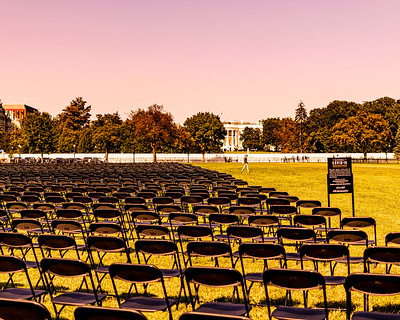“Hi, my name is Alejandra and I’m calling from the Florida Department of Health. Have you been given the results from your COVID-19 test?”
This line was ingrained in my head. I spoke it hundreds of times over the 70 days I worked as a contact tracer. This was the new reality as we collectively entered the season of the COVID-19 pandemic. I went from graduating with a Master of Public Health (MPH) to working for the Health Department in a matter of days and came face to face with some of the most crippling parts of this pandemic: death and its other life-changing effects.
“I need to ask you some questions since you tested positive. What symptoms have you had? How high has your temperature been? Who else have you been around? How do you think you got sick?”
The questions never changed but the answers were at times drastically different.
“I’m so scared. I’ve been staying away from my family, but we live in a small house and they still have to go to work to afford rent and food. I don’t know what my temperature is, I don’t have a thermometer. Am I going to die?”
“This virus is such a hoax. It is being so blown out of proportion. I’ve had colds worse than this. You’re hurting my business over a fake pandemic.”
The conversations unraveled me… having to oscillate between hearing people cry on the phone and hearing the panic in their voice; asking me if they were going to die; explaining to them how to prevent other family members from also getting infected. And on the other end of the spectrum, getting yelled at for calling and buying into the fake news of this pandemic. It was clear that what mattered most was not universal. Some were most worried about the health and safety for themselves and loved ones. Others were more concerned with going back to work and opening the world back up in order to go about business as usual. It was apparent that though we are all in this pandemic together, our lived experiences are notably different.
I worked in South Florida and Central Florida, both known for their large Latinx population as well as their migrant (and often undocumented) farm worker population, responsible for putting fresh food on our tables. As one of the only Spanish-speakers in the group, I had the unique opportunity to interact with the diverse cases of English-speakers and the niche cases of Spanish-speaking cases.
This pandemic is uncovering how the privilege to explore life and living fully is truly defined by the birth lottery ticket we are given. This pandemic shows how many privileged, White groups are able to live out ‘You Only Live Once’ ideologies in the forms of anti-mask stances, going to large social gatherings, going to restaurants and bars and not being overly concerned about getting infected with this virus. These actions are often not an option for people of color—many of whom need to work, keep their multigenerational households safe, or lack access to medical insurance or care if one was to get sick.
I often wonder how, in 2020, we have reverted back to such individualistic mentalities. Wearing a mask somehow takes away part of our freedom and dampens our lives, yet we fail to recognize the real burdens of morbidity and mortality from COVID-19. During a time when BIPOC are being murdered at the hand of the state, POC are dying at higher rates and facing historic unemployment, financial, and mental health crises, what does it look like to “live during a pandemic”? What does it look like to willingly choose to not wear a mask or go out to a bar or a party, knowing the potential consequences and having the privilege to shoulder them?
Perhaps we envision death differently due to our class, race, and ultimately, our privilege. For many people who are minorities—BIPOC, Latinx, immigrants from developing nations, queer folx—medical death isn’t a fantasy or a hoax up for discussion. The generational trauma of seeing the young and old die from lack of medical access is real. Seeing friends and loved ones die from HIV/AIDS is real. Reverting to home remedies because medicine isn’t available is real. The notion that a virus, which has claimed over 200,000 American lives, isn’t real cannot be entertained, when that narrative is a rendition of traumatic events that people have lived through before.
It didn’t have to be this way and it doesn’t have to continue this way. Death may be an individual’s experience, but life is a collective experience. As we await a vaccine and grapple with the realities that we are still in a pandemic, having conversations about what it means to live starts with “us” and not “I”. It starts with wearing a mask and thinking of our neighbor. It starts with consciously voting even if we personally aren’t affected by discriminatory laws because perhaps our neighbors could be. The privilege we are given isn’t intended to be a shameful burden. As we recognize our privilege, I hope that we will discern how to use that privilege to create more justice and less cynicism, more truth and less conspiracy.


Thank you for this essay. And for your work during this pandemic. And for your patience in listening for the widely disparate responses of those you called. This is such an incredibly challenging time, and you have provided such an important perspective. Much appreciated.